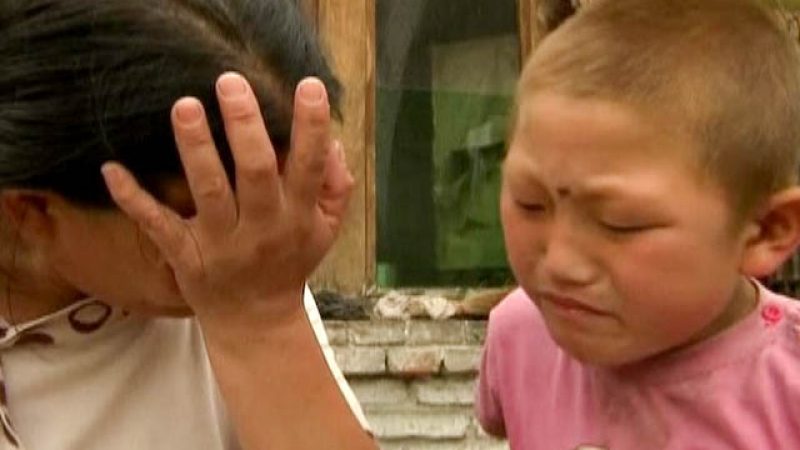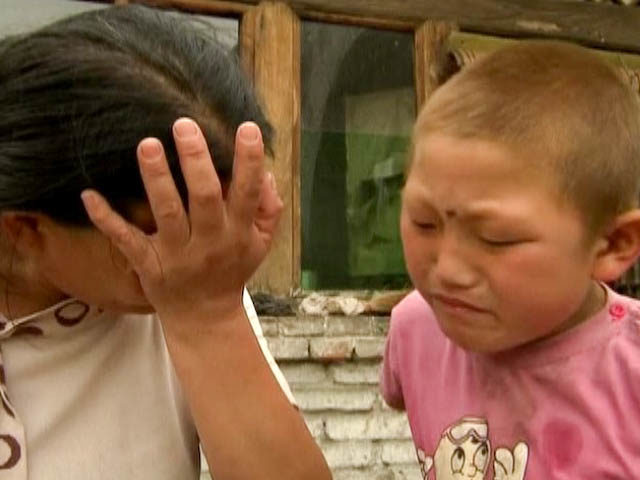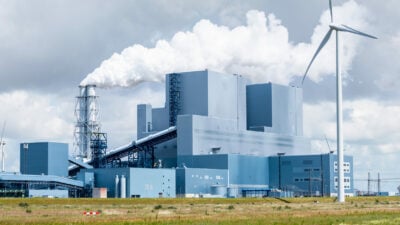
Birth Defect Concerns in China

Experts say pollution from the coal industry is causing birth defects in China’s central Shanxi province. Today we bring you the story of one family allegedly affected by the harsh condition.
Ten-year-old Chinese boy Yilong is already a statistic, born at the center of the nation’s coal industry, the mentally handicapped youngster is unable to speak. He is just one of many such children in Gaojiagou village in China’s Shanxi Province, where coal has brought riches to a few and jobs to many.
Experts say coal mining and processing pollution has given Shanxi a birth defect rate six times higher than the national average, already high by global standards.
Yilong’s mother says she has to protect her children from prejudice.
[Wang Caiying, Yilong’s Mother]:
„I never let them go out, I don’t want people to laugh at my children. They stay in this courtyard every day. I am especially worried about my son. He doesn’t know how to take care of himself. I have to do everything for him.“
Her 13-year-old daughter, Yimei, can only say one word.
The two children spend most of the day playing in their small courtyard, while their mother and father Hu Yongliang take care of them.
[Hu Yongliang, Yilong’s Father]:
„They looked normal when they were born. But they were still unable to talk or walk over a year later. They learned to walk at the age of six or seven. They are very weak. Nobody knows what the problem is.“
The number of birth defects in Chinese infants soared nearly 40 percent from 2001 to 2006, according to a National Population and Family Planning Commission report.
Professor Pan Xiaochuan of Peking University says Shanxi’s high birth defect statistics are coal related.
[Professor Pan Xiaochuan, Peking University]:
„The fact that the rate of birth defects in Shanxi province is higher is related to environmental pollution caused by the high level of energy production and burning of coal.“
Like many other villages in southwest Shanxi, Gaojiagou is surrounded by at least a dozen mines spewing out millions of tons of coal every year to feed China’s power plants and steel mills.
The health ministry last week said it would give folic acid supplements to 12 million rural women to try to reduce the rate of defects, especially common neurological defects easily prevented with such supplements.
 (NTDTV)
(NTDTV)



![[Live] Magdeburg: Pressekonferenz mit Polizei und Staatsanwaltschaft](https://images-de.epochtimes.de/uploads/2024/12/THUMB-PK-Magdeburg-400x225.jpg)























vielen Dank, dass Sie unseren Kommentar-Bereich nutzen.
Bitte verzichten Sie auf Unterstellungen, Schimpfworte, aggressive Formulierungen und Werbe-Links. Solche Kommentare werden wir nicht veröffentlichen. Dies umfasst ebenso abschweifende Kommentare, die keinen konkreten Bezug zum jeweiligen Artikel haben. Viele Kommentare waren bisher schon anregend und auf die Themen bezogen. Wir bitten Sie um eine Qualität, die den Artikeln entspricht, so haben wir alle etwas davon.
Da wir die Verantwortung für jeden veröffentlichten Kommentar tragen, geben wir Kommentare erst nach einer Prüfung frei. Je nach Aufkommen kann es deswegen zu zeitlichen Verzögerungen kommen.
Ihre Epoch Times - Redaktion